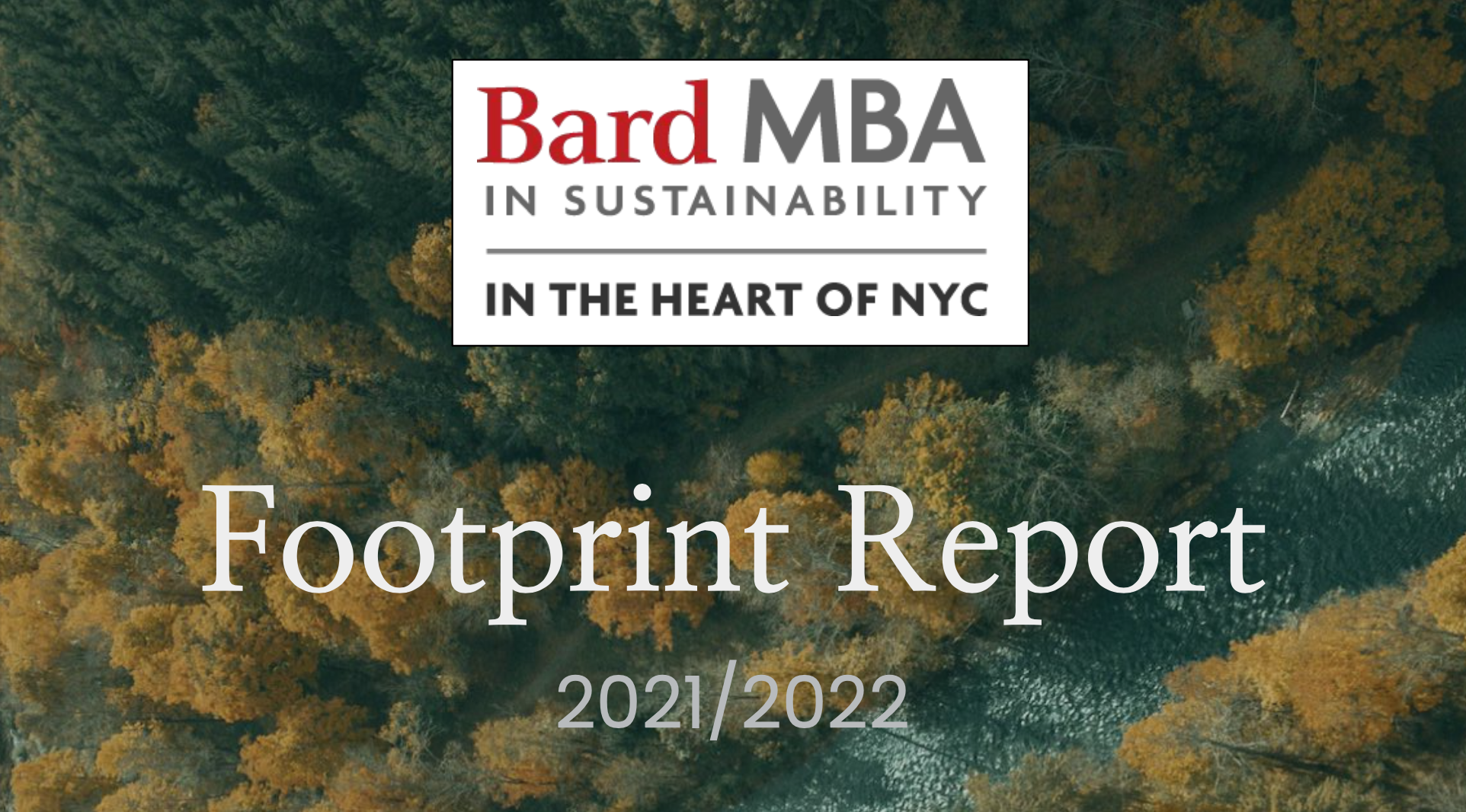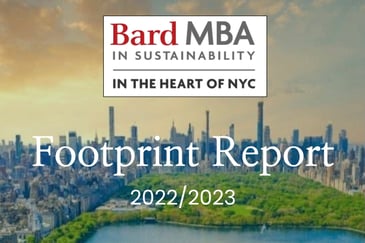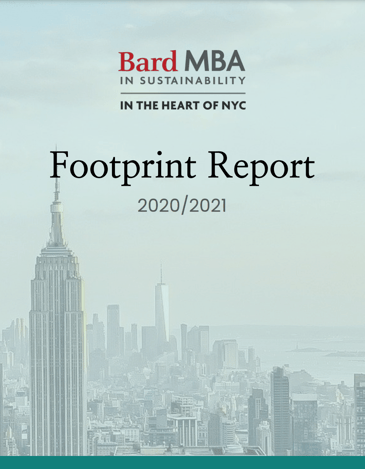Announcing the 2021/2022 Footprint Report

The Bard MBA in Sustainability Footprint Committee is thrilled to publish the Second Annual Footprint Report for the 2021-2022 academic year. The report accounts for the estimated emissions of the first academic year after the fully remote COVID-19 2020-2021 academic year. This report includes emissions for the blend of both remote and in-person attendance beginning in August 2021 and ending in May 2022.
The total greenhouse gas emissions for the 2021-2022 academic year were 100.86 MT CO2e, the equivalent of 250,355 miles driven in a passenger vehicle.
This year’s report made three key updates:
1. Social Impact
This academic year the committee partnered with the program administration to report on diversity, equity, and inclusion metrics. This year’s social section serves as a starting point for the program’s reporting and will continue to be built out by the exceptional leadership of both the student-led Footprint and DEI committees in collaboration with the administration to drive change within the program related to diversity, equity, and inclusion.
2. Hybrid Residency Attendance
Before the COVID-19 pandemic, in-person attendance was a requirement for all monthly residencies. This academic year, the attendance fluctuated between in-person and remote due to unpredictability of the continued pandemic. Therefore, the emissions calculated included a hybrid attendance format for residencies with students reporting how many residencies they attended online and how many in-person. This hybrid attendance meant a decrease in our travel emissions but an increase in data usage for residencies.
3. Greenhouse Gasses
Previous footprint reports accounted for carbon emissions only, but this year, where data was available, the committee accounted for all relevant greenhouse gasses in alignment with Greenhouse Gas Protocol standards. While numbers are still reported in CO2e for this report, each section includes a list of the included greenhouse gasses encompassed in that number to provide a more comprehensive impact outside only carbon.
The Bard MBA in Sustainability sees reduction of the footprint as a key to overall sustainability practices of the program and crucial to the fight against climate change. However, we acknowledge there are limitations to that reduction without broader systemic change, especially in the transportation and electrical sectors. The program has chosen to offset the emissions to remain carbon neutral while working on reducing emissions that are within the programs control and advocating for the infrastructural changes that would significantly reduce the rest. The offsets for this year were procured from Native Energy which will go towards funding a green brick project for residential and commercial buildings in Madhya Pradesh, India.
The Committee is grateful for the continued support and interest in this report and welcomes questions and discussion.

The goal of the Footprint Committee is to provide students with a solid foundation for understanding, analyzing, and translating carbon footprint data. Committee members were responsible for every part of the process from survey design to methodology, to data analysis/visualization and interpretation. The skill-set acquired through participation is real-world experience that will be transferable to many of the sustainability roles that students will take on in their careers.




